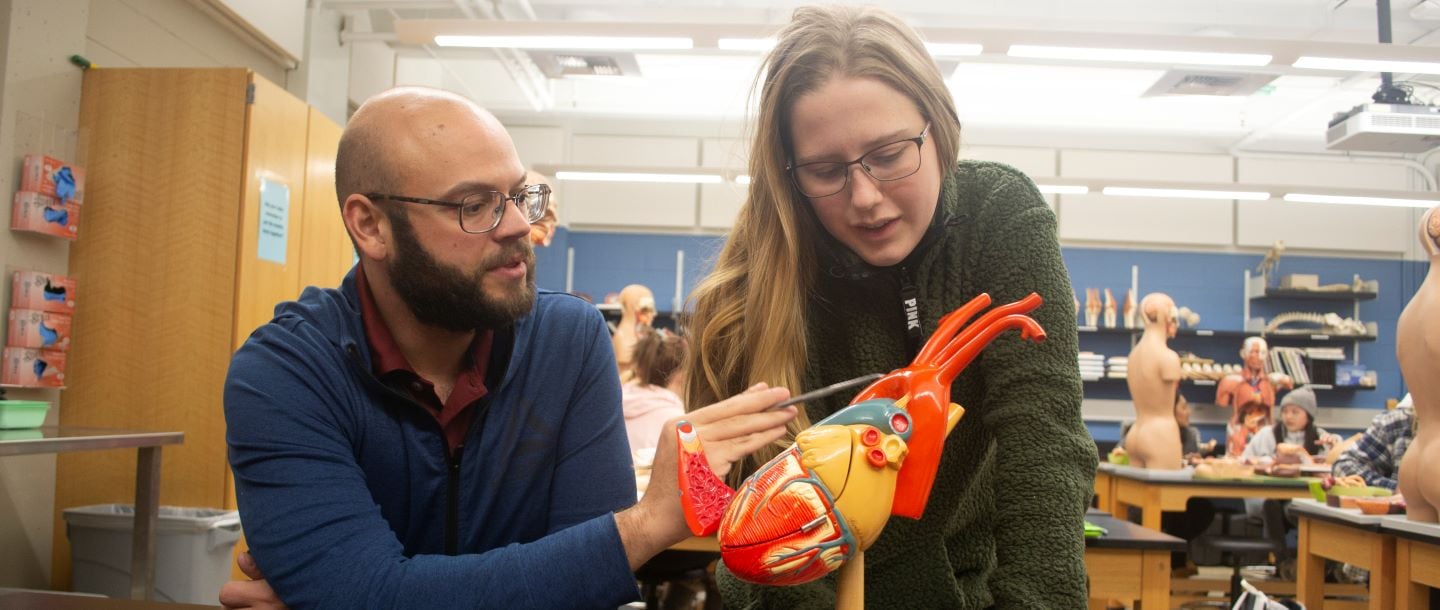
The Department of Biological Sciences offers programs for students preparing for careers in education, laboratory and field research, biotechnology, environmental sciences, medical laboratory sciences, cytotechnology, nuclear medicine technology, food science technology, and pre-professional programs including pre-medicine, pre-dental, and pre-veterinary medicine.
Our Department
Biology programs are housed in the Department of Biological Sciences
Our Curriculum
The biology major offers a core program intended to develop a common background in biology and additional upper-level courses designed to provide specialized options.
Careers in this field
- Biologist
- Bioinformatics Scientist
- Microbiologist
- Zoologist and Wildlife Biologist
Biology, BS Biomedical and Cellular Biology
A critical understanding and awareness of cellular and molecular physiology is necessary for future leaders pursuing careers in healthcare, translational, or essential scientific discovery.
Biology, BS Organismal Biology and Ecology
The Biology BS: Organismal and Ecology emphasis is for students fascinated with the diversity of living things and the biology of populations, communities, and ecosystems.
Biology, Minor
The Biology Minor is a general introduction to the biological sciences and is a great addition to any major. It is under the College of Science, Engineering and Technology,
Biology, Master of Science (MS)
Program requirements for Master of Science in Biology.

